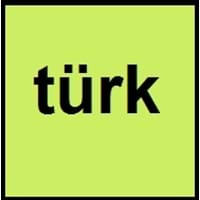Turkish vs Xhosa
- Turkish language oldest written records are found upon stone monuments in Central Asia, in Orhun, Yenisey and Talas regions.
- Turkish language was developed in the Middle East, streching all the way to Eastern Europe.
- Xhosa has 15 click sounds, borrowed from the khoi-khoi and san languages of the South Africa.
- The same sequence of consonants and vowels can have different meaning when said with different tones, so Xhosa is tonal.
Turkish and Xhosa Language History
Comparison of Turkish vs Xhosa language history gives us differences between origin of Turkish and Xhosa language. History of Turkish language states that this language originated in c. 1350 whereas history of Xhosa language states that this language originated in 16th Century. Family of the language also forms a part of history of that language. More on language families of these languages can be found out on Turkish and Xhosa Language History.
Turkish and Xhosa Greetings
People around the world use different languages to interact with each other. Even if we cannot communicate fluently in any language, it will always be beneficial to know about some of the common greetings or phrases from that language. This is where Turkish and Xhosa greetings helps you to understand basic phrases in Turkish and Xhosa language. Turkish word for "Hello" is Merhaba or Xhosa word for "Thank You" is Ndiyabulela. Find more of such common Turkish Greetings and Xhosa Greetings. These greetings will help you to be more confident when conversing with natives that speak these languages.
Turkish vs Xhosa Difficulty
The Turkish vs Xhosa difficulty level basically depends on the number of Turkish Alphabets and Xhosa Alphabets. Also the number of vowels and consonants in the language plays an important role in deciding the difficulty level of that language. The important points to be considered when we compare Turkish and Xhosa are the origin, speaking countries, language family, different greetings, speaking population of these languages. Want to know in Turkish and Xhosa, which language is harder to learn? Time required to learn Turkish is 44 weeks while to learn Xhosa time required is 44 weeks.





